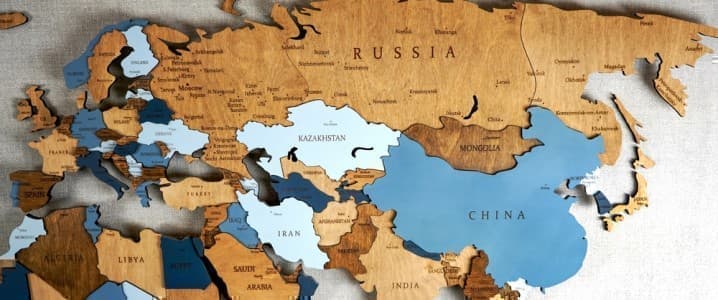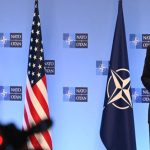On November 12, 2021, at the eighth (and final) summit of the Turkic Council in Istanbul, Turkey, the group’s name was changed to the Organization of Turkic States (OTS) and Turkmenistan was admitted as an observer state (Turkkon.org, accessed July 20). Simultaneously, the document “View of the Turkish World – 2040” was ratified (President.az, November 12, 2021). The current situation implies that the OTS is particularly interested in multilateral cooperation in all spheres, especially on economic, education and cultural considerations, as well as building confidence regarding regional cooperation issues (Az.trend.az, July 3; Turkkon.org, July 31). To promote economic integration and adequately respond to global shocks, the OTS is fostering collaboration in various directions, including trade, energy, transport and logistics, cybersecurity, agriculture, tourism, law and order, the formation of platforms for overcoming modern challenges and cultural relations (Azertag.az, May 14, 24, 27, July 1; Apa.az, June 30). Several recent examples have illustrated these efforts.
First, some of OTS’s work and projects regarding internal economic integration and cooperation are of great importance for the development and strengthening of trade and economic relations between Europe and Asia. At the eighth meeting of the heads of the OTS’s Customs Service in Bishkek, Kyrgyzstan, discussions focused on the creation of a simplified customs corridor aimed at increasing the efficiency of transportation, optimizing the passage of goods through border control, developing transport and logistics system, as well as facilitating and ensuring the security of these processes (Az.trend.az, June 11).
Second, at the ad hoc meeting of responsible information technology ministers from the organization’s member countries in Baku, Azerbaijan, proposals were put forward to increase regional collaboration on cybersecurity. Integration will be done both in multilateral and bilateral formats, in connection with the recognition of electronic signatures (Azertag.az, May 27).
Third, at the OTS’s agribusiness forum in Tashkent, Uzbekistan, the possibility of expanding cooperation between member countries via the implementation of joint projects was discussed, particularly in agricultural education, technology transfer, as well as plant and animal health (Agro.gov.az, July 4). At the first meeting of the Organization of Turkic States on Human Resources, convened in Istanbul on July 28–29, the member countries agreed on several measures that will be executed jointly, including the formation of thematic working groups, experience-sharing programs and the launch of a comprehensive training program for bureaucrats of OTS member and observer states (Turkkon.org, July 31).
Beyond regional influence, the organization pursues expanding relations on an international scale and cooperates with global entities such as the World Health Organization, Organization for Security and Co-operation in Europe and United Nations Development Programme, among others (Turkkon.org, July 20). The representation of Hungary in the organization is expected to play a special role in developing relations with European countries and continental organizations in this regard (President.az, October 15, 2019). It is not a coincidence that, last year, Hungary proposed convening a joint summit of the OTS and Visegrad Group (V4) heads of state during Budapest’s rotational V4 presidency (see EDM, November 17, 2021).
Related: Xi To Meet Putin In Uzbekistan In First Overseas Trip Since Start Of Pandemic
Currently, the OTS is becoming more and more attractive, and various countries are eager to either join it or participate in its activities as observers (President.az, November 12, 2021). As of the end of July 2022, 15 countries have declared interest in joining the organization as observers (Turkkon.org, July 31). Several reasons underline this fact. OTS member countries possess rich natural resources, modern infrastructure, energy resources and logistics arteries toward the European Union and China. Additionally, the organization has not been confronted with any competitive third parties from a political point of view.
In terms of relations among OTS members, bilateral relations are of critical importance. In this light, particular attention is paid to the development of transportation routes and energy corridors passing through the Caspian Sea from Central Asia. From this perspective, large infrastructure investments have been made in these countries, and such investment projects are expanding (Azertag.az, June 29).
Thus, the opportunity has presented itself to turn all roads, including the Trans-Caspian East-West-Middle Corridor through the Caspian Sea, into the main arteries for the region, mirrored by the global export routes of Central Asia’s energy resources (President.az, November 12, 2021). As a continuation of this policy, on June 27, the first tripartite meeting of the foreign and transport ministers from Azerbaijan, Kazakhstan and Turkey was held in Baku. This format is planned to become an effective mechanism in strengthening security, stability and cooperation, both regionally and in a broader sense (Apa.az, June 27).
Therefore, the OTS’s main objectives include creating favorable conditions for regional trade relations and investments; striving for comprehensive and balanced economic, social and cultural development; expanding mutual relations in science, technology, education and culture; and contributing in a significant manner to the region’s peace and security.
However, the organization does not limit itself to purely working within the framework of its member states. The OTS regularly cooperates with neighboring states and organizations. Currently, as threats to global security, stability and economic development are increasing, strengthening cooperation in the transport, energy and economic sectors will be crucial for preventing and reducing the risks and challenges of the wider Eurasia region. It is therefore no coincidence that the expert community evaluates the OTS as a “new geopolitical reality” in the Eurasian space.
By The Jamestown Foundation



